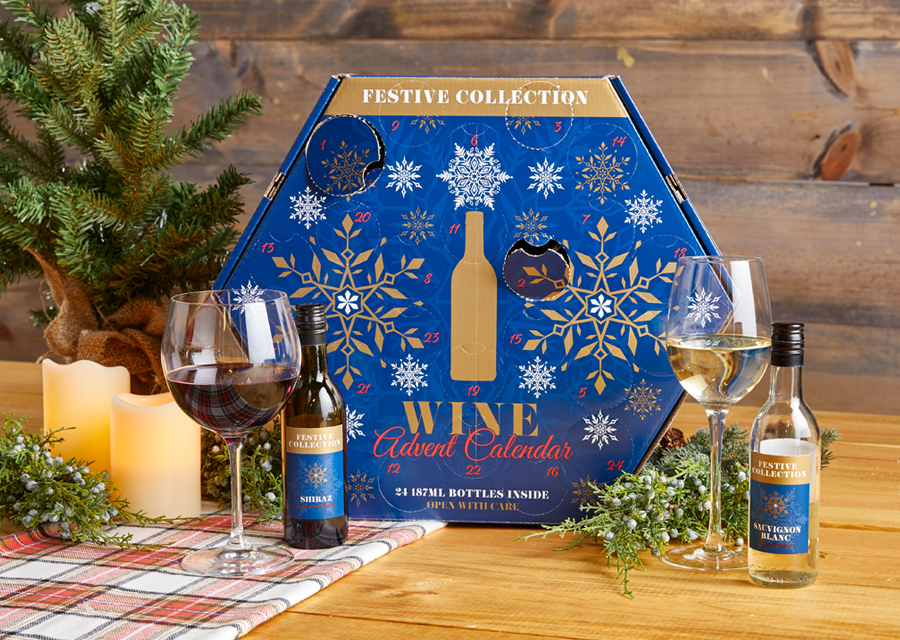
Discounters and specialty retailers hold a special place in the wine market, and now they hold spots on Wine Enthusiast’s list of America’s 50 Best Wine Retailers. The magazine noted the variety and value that larger stores provide to customers, ranging from promotions to private label wine that top year-end lists. In this article, we cover the featured retailers in the Value Wines category, and what makes them stand out in the market.
Grocery Outlet
At more than 300 stores, with most in California, Oregon and Washington, this chain sells surplus goods at deep discounts. Look for name brand wines at dramatically reduced prices, sometimes under $5. Restaurateurs are known to pick up bottles there on the cheap from time to time.
WineEnthusiast, America’s 50 Best Wine Retailers
Grocery Outlet buys surplus from wineries and other vendors directly, and from there individual stores buy their selection. The low prices, usually at extreme markdowns from regular price, are possible because Grocery Outlet normally does not advertise their savings outside of stores. Cameron Wilson, director of wine, beer, and spirits at the chain, notes in an interview with Market Watch Magazine that, “It’s a selling point for us that you can’t shop us online…it keeps sensitive information within our stores. When we deal with people and wineries worried about their prices, we can assure them they don’t have anything to worry about. We work with them.”

Wilson goes on to compare wine shopping at Grocery Outlet to a treasure hunt, following in line with WineEnthusiast’s analysis. The retailer’s selection can include rare vintages from acclaimed winemakers to local favorites to supermarket staples, all changing from season to season. Week-long wine sales, taking place twice a year, also highlight the value-driven department.
The chain operates over 300 stores in California, Washington, and Oregon, making it easy to find bargains directly from wineries. The wine deals also have implications for other areas of the store.
Grocery Outlet customers have high expectations of finding good quality wines from these states [California, Washington, and Oregon] at competitive prices. Good value wines from these states bring in a lot of customers who then often shop for other things.
Cameron Wilson, “Grocery Outlet’s Discounted Wine Sales Help Fuel Growth” in Market Watch Magazine

Costco
As with its food, Costco keeps wine and liquor prices low by selling them with very little markup and making up the difference through its membership fees. While there are higher-end, name-brand wines available at a discount, this store’s selection really shines in the under $20 range, especially, its house Kirkland Signature label.
WineEnthusiast, America’s 50 Best Wine Retailers
Kirkland wines have developed a cult following as a result of their value, inspiring lists and rankings across the internet in Business Insider, The Seattle Times, SF Gate, Wall Street Journal, and Buzzfeed. The California wines typically come out of the Sonoma and Napa regions, including the retailer’s top-rated 2015 Rutherford Napa Valley Meritage. The private label approach to wine allows Costco to price their wines independently from other retailers.
Though a wine like the 2015 Rutherford may cost less than $20, The Wall Street Journal notes that the bottle lists Marco DiGiulio (the wine director at Sonoma’s Vintage Wine Estates) and Glenn Hugo (the winemaker at Gerard Winery in Napa) as the winemakers.

Aldi
This German supermarket chain made a splash when its house label $8 Côtes de Provence rosé won an International Wine Challenge award. The chain has more up its sleeve, though, with wines ranging from Sonoma Coast Pinot Noir to New Zealand Sauvignon Blanc, some of which have been awarded W.E.’s Best Buy designation.
WineEnthusiast, America’s 50 Best Wine Retailers
In addition to low prices, Aldi focuses on wines from upcoming wine region such as Sonoma Coast, Lodi, and Monterey in California, Columbia Valley in Washington State, and international offerings from New Zealand and Argentina. Their private label wines from the regions rank at over 87 points in the World Wine Championships held by the Beverage Testing Institute. As noted by WineEnthusiast, the retailer’s private label rosé won at an English wine competition, beating out every other rosé in its price range in 2017.

The award may only be for wines under £8, but headlines launched acclaim for Aldi’s wine selection, leading to rankings and lists in a similar manner to Costco’s private label offerings. Aldi’s wine business is also supported by limited-time products that sell out each year, like their Wine Advent Calendar. One account from a store manager mentioned that when the calendar, which includes 24 187ml bottles of wine, debuted in 2017, the location sold out of the product immediately after opening.

Discounters and value wine selections offer customers the chance to discover good-value bottles that match or even exceed those from well-known wineries. On top of the quality, these bottles are often available for under 10 dollars, or otherwise rank far above their price category.
Recognition in internet lists and wine competitions was the beginning for these retailers, but more traditional outlets like magazines are beginning to acknowledge the value that private label and surplus buying provide–not only for consumers, but winemakers as well. Private label allows for up-and-coming wine regions to showcase their quality, while resellers like Grocery Outlet take the unsold stock from wineries and offer them at affordable yet discreet markdowns.
With so many wine private labels that are now available in the market, it’s harder for retailers to match what they have and not only be competitively priced, but also have the right competitive assortment. Engage3’s CIM:Product Linking leads the industry in its state-of-the-art product matching capabilities by serving as a collaboration platform, a productivity tool, and a system of record – so retailers have visibility of in-store and online assortment and pricing.


